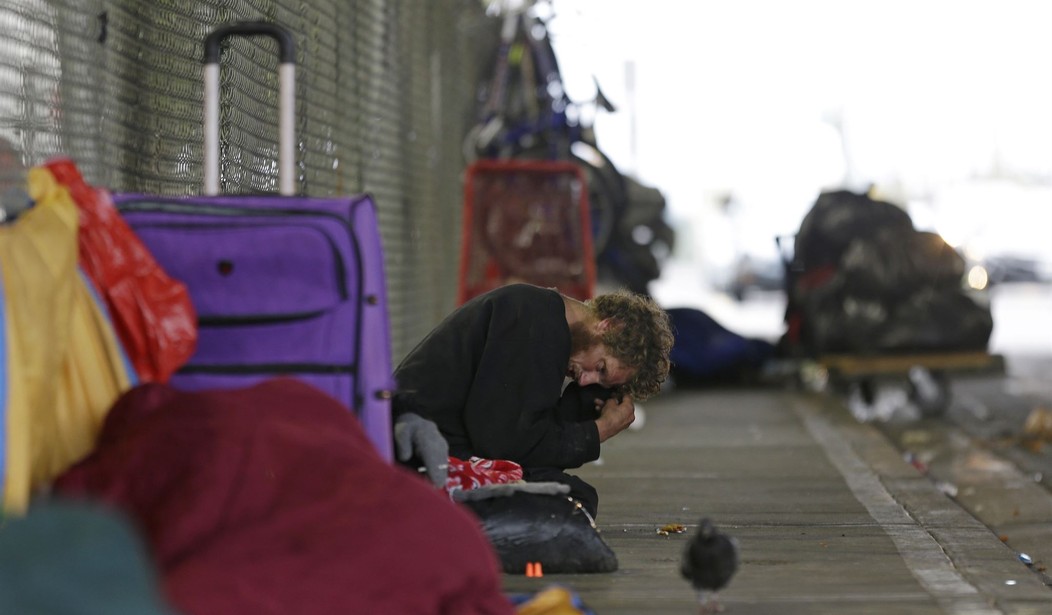Why are conservatives happier than liberals? Why do leftists report more anxiety, depression, and neuroses compared to those on the right?
Social scientists are perplexed — as well they should be, considering that for every one conservative social scientist, there are 10 liberals. But across all age groups, all incomes, all races, and both sexes — in every single measurable way — conservatives are happier than liberals.
Musa al-Gharbi, writing in the quarterly journal American Affairs, details the phenomenon and offers some insight into possible reasons for the “well-being gap.”
Conservatives are more likely to be patriotic and religious. They are more likely to be (happily) married and less likely to divorce. Religiosity, in turn, correlates with greater subjective and objective well-being…. So does patriotism. So does marriage. Consequently, some have argued that the apparent psychological benefit of conservatism actually comes from feeling deeper connections with one’s country, one’s family, and the Divine. On this model, conservatism itself would be largely incidental to the happiness gap. A liberal who was similarly religious, or patriotic, or had a similarly happy marriage, would be expected to have similar levels of happiness as conservative peers.
In a similar vein, studies have repeatedly found that conservatives—both politicians and laymen—tend to be more conventionally attractive than liberals (and have better sex lives). Moreover, people who are healthier in childhood have been shown to be more likely to become conservative as adults. Meanwhile, people with high measured cognitive ability are also more likely to support economic conservatism (and cultural liberalism).
Leftists explain this gap as part of their social justice narrative. Al-Gharbi exposes this argument: “The happiness gap between liberals and conservatives may, in turn, be a simple product of the reality that conservatives tend to find themselves in more fortunate social positions (more attractive, healthy, intelligent, socially integrated). And conservatism may help these folks maintain their happiness by legitimizing the privileges they exploit to maintain or enhance their social position.”
But the relationship between “privilege” and conservatism is a two-way street. A belief in personal responsibility may help explain why right-wingers are more attractive, given they take pride in their appearance and try to control how they look through diet and exercise. And independent of attendance at religious services, even religious leftists report being unhappy at twice the rate as religious conservatives.
Yet the most challenging fact pattern for the “privilege plus system justification” narrative of the ideological happiness gap is that, as I spell out in my forthcoming book (and this talk), wealth increasingly correlates with liberal political parties and views in the United States and many other countries. That is, the “winners” in the current economy are increasingly the people who are most depressed. This is hard to explain if the happiness gap is purely a function of privilege.
Furthermore, immigrants and minorities in the United States are more likely to be religious and socially conservative as compared to native-born whites. Likely not coincidentally, immigrants and racial or ethnic minorities are also significantly less likely to be diagnosed with depression as compared to non-Hispanic white peers. This is likely not a result of the “privilege” they enjoy relative to native-born non-Hispanic whites.
The “happiness gap” could be explained by genetics or other biological factors, although that evidence has yet to be discovered. What we know now, writes al-Gharbi, is that there could be a direct relationship between liberalism and mental illness that “maybe that certain psychological conditions drive people toward liberal ideology. On the other hand, it could be that some aspect of liberalism routinely undermines adherents’ subjective well-being. A case could be made in either direction.”
Why is it that maladjusted, anti-social children gravitate toward left-wing parties as adults?
For instance, there is some evidence that children who are maladjusted (angry, aggressive, otherwise antisocial) are more likely to align themselves with left-wing parties as adults. Other studies have found that people who experienced abuse, insecurity, and trauma as children were much more likely to identify as liberal as adults. These populations are also especially likely to report mental illness as adults. Hence, it could be that much of the correlation between liberalism and mental illness is driven by people with mental distress favoring liberal ideology over conservatism.
Other studies have found that people who score highly on “Dark Triad” characteristics (narcissism, psychopathy, Machivallianism) may be especially likely to gravitate towards certain strains of “social justice” ideology (here, here, here, here, here, here). Likewise with many inclined towards authoritarianism (here, here, here, here, here).
Exclusively for our VIPs: The Failures of Feminism
It isn’t just the recent “Great Awokening” that has depressed the left. There appears to be something systemic in left-wing ideology that drives people to unhappiness. And the unhappiness isn’t limited to politics. Unhappy marriages, a lack of self-satisfaction in life — the pathology can’t be denied.
This has been a dirty little secret in social science since the divide in happiness was first recognized in 2005. Perhaps it’s time to take the issue out of the closet and talk about it honestly.
Well, we can dream, can’t we?










Join the conversation as a VIP Member